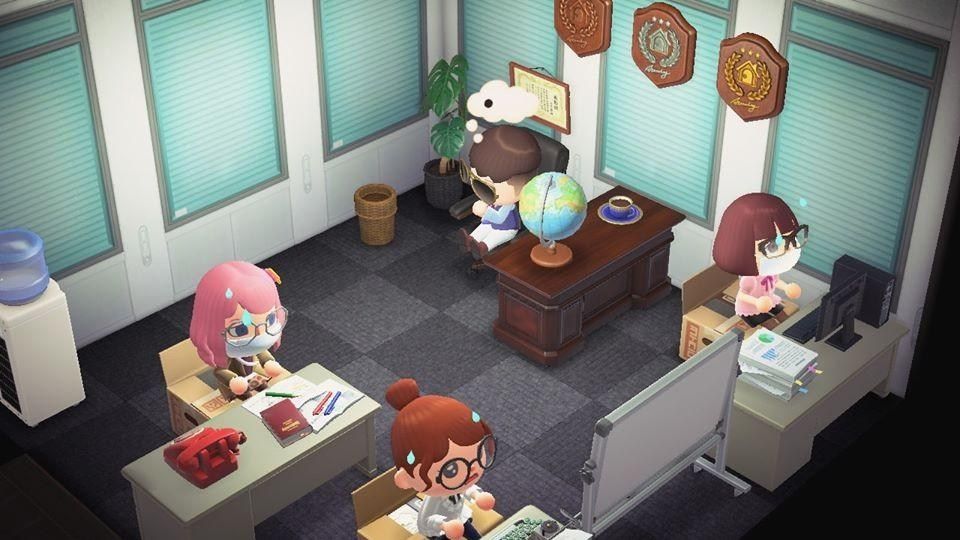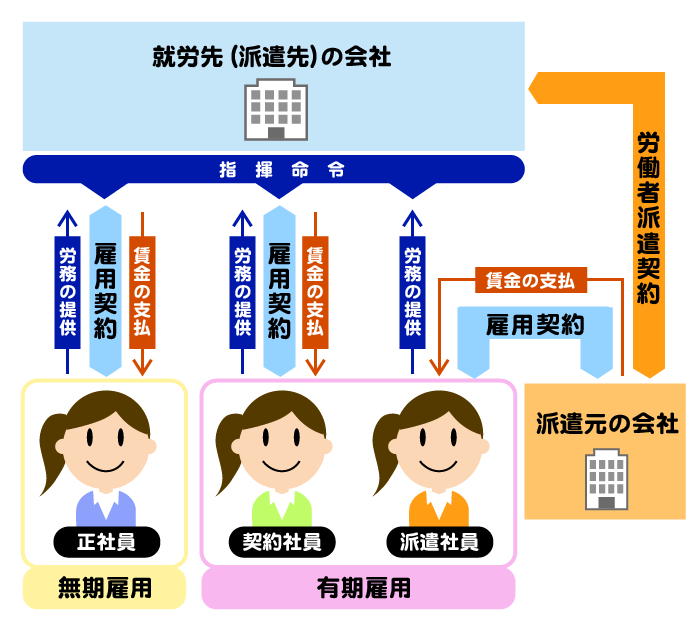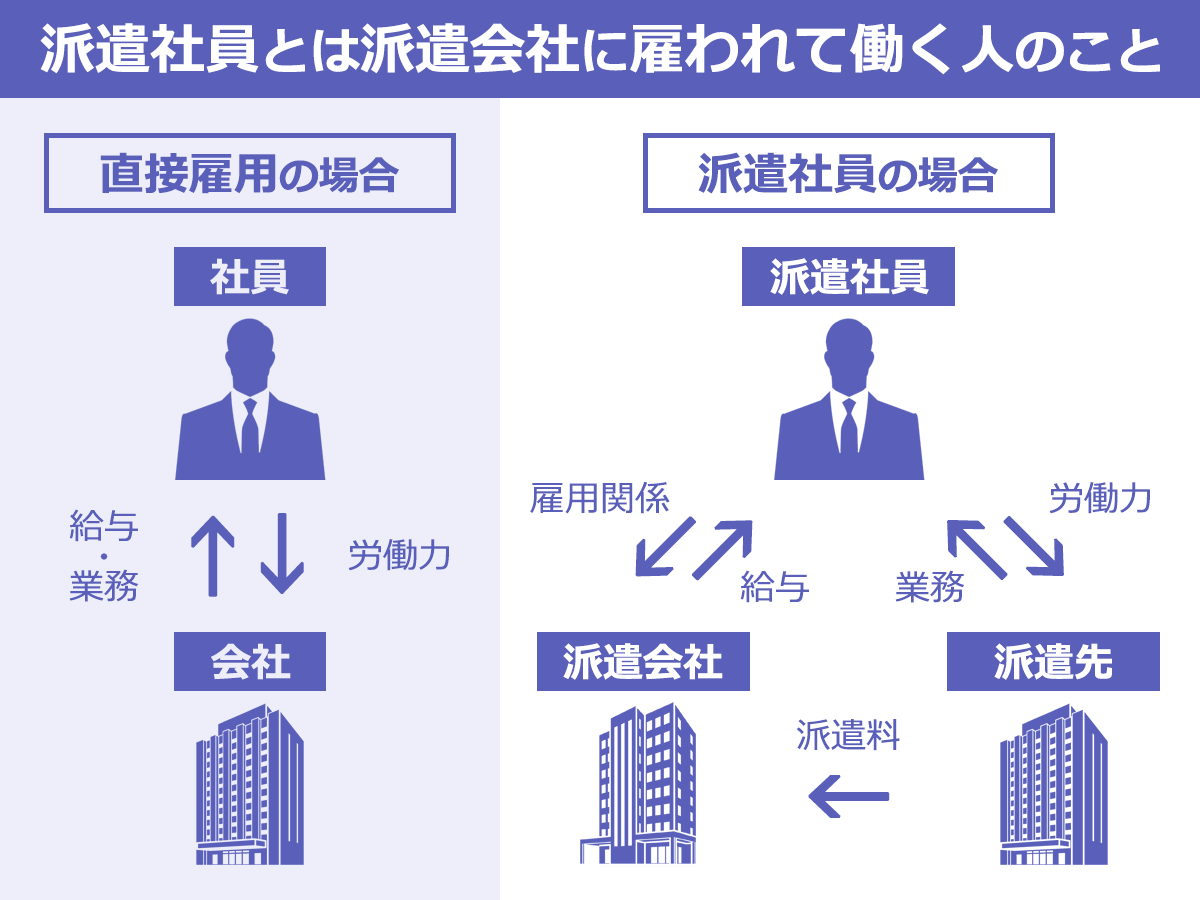Working in Japan: Employment patterns and culture

Source: https://digwow.net/forum-16/thread-103740.htm
Employment type: full member, contract member, dispatched member
When working in Japan, a very special and important factor is the employment status. Although it is necessary to find out the employment type of this position before the interview, after getting the offer letter (called the adoption notice in Japan), you must Confirm the employment type once.
Usually full-time jobs (not considering part-time jobs or part-time jobs) generally have these three forms.

Source: https://biz-note.jp/the-difference-temporary-staff-contract-employees/
Full member
Generally speaking, experienced engineers who want to move to Japan will mainly target full-time employees. Those with no experience or non-undergraduate students will have the opportunity to enter dispatched positions. Different people have different conditions and requirements. consider.
The benefits for full-time members are the most complete, and because Japanese companies have many kinds of benefits, the actual difference between these subsidies and benefits will be very large.
99.9% of the Japanese job advertisements you see on Facebook are dispatch companies, and many headhunters are also dispatch companies, so you should pay special attention to this. However, although you will hear that dispatch is almost a scam, there are a few exceptions, but they are usually multinational. No one is willing to take this risk.
Contract member
To use a Taiwanese conceptual metaphor, it is like an appointment. You sign a contract with a company, but it has a fixed number of years, usually three years.
Dispatch members
The concept of dispatch is explained very clearly in the picture below, which can also be read in Chinese:

Source: https://ten-navi.com/hacks/article-255-24963
From the relationship in this picture, we can see some of the disadvantages of dispatch:
- The output of dispatched employees is given by the dispatching company, not by the company where they work, so it is easy to be disconnected from the work performance; I have heard of examples where the intermediate expenses eaten by different dispatching companies are very different, and the number of subcontracting levels is also different. Different wages result in huge differences in the salaries of dispatched employees in the same unit.
- Following on from the above, because dispatch offers few benefits, there is no permanent employment, and there is no expectation that employees will work for the company for the rest of their lives, this has created a situation in which many dispatch jobs are non-core jobs and are relatively marginal.
- Dispatch companies are able to continuously subcontract to downstream dispatch companies, and the result of layers of subcontracting provides opportunities for exploitation by these intermediaries. In fact, Japan has always had dispatch companies falsifying academic qualifications, and many of them are candidates working for large companies. From this, we can know that some dispatch companies will do anything to make money.
But dispatching is not without its merits. The emergence of dispatching companies has indeed solved some labor matching problems. For example, some companies do not require employees to be hired for life, and employees who have completed phased tasks can also be assigned to other companies for tasks.
Moreover, because the company has to support full-time employees for a lifetime, most of the chores are borne by full-time employees, the work content is less fixed, and the pressure of overtime will also fall on full-time employees. In this regard, the responsibilities of dispatch are relatively light.
There is even a saying: In Japan, because dispatch work usually allows you to get off work on time, has a moderate workload, and pays well, it has become one of the ideal job options for some married women. However, I am not a Japanese woman and cannot confirm the authenticity, so These are good references.
Dispatch of regular members
There is also a special type called "full member dispatch", which is similar to Taiwan's outsourcing company dispatching to Party A. Although you are a full member of the dispatch company and enjoy the benefits of the dispatch company, you are basically working in Party A. Party units work.
To put it simply, the dispatch of full-time employees is full-time employees of the dispatching company. However, they are sent to other places to work and enjoy the same benefits as ordinary full-time employees, such as overtime pay, housing subsidies, and rewards. The difference lies in the promotion ratio. It's difficult in general companies. After all, they are assigned to other jobs, so the salary is very low. Basically, everyone uses this as a springboard. During the interview, the personnel also directly said that they don't think anyone will actually retire. It usually takes about 2-3 years. Just jumped away, five years at most. Also, because it is a dispatch, it is possible to travel all over Japan, but there are also companies that do not help with the moving expenses. You need to ask carefully. For normal dispatch of full-time employees, basic payment will still be provided when they are on standby (not assigned to work). If not, it's black.
Excerpted from: https://www.ptt.cc/bbs/Japan_Living/M.1571889719.A.BA5.html
summary
Full-time employees in Japan cannot lay off employees at will, and the protection of benefits, pensions, etc. is much better than that of dispatched employees; however, dispatched jobs are not necessarily worse, because without benefits, the company’s burden of layoffs is also small, so for positions with the same conditions, dispatched jobs are also available. Opportunity to get a higher salary.
No matter which one you choose, be sure to confirm your employment type before the interview and after admission.
Work culture considerations
Mental state and quality of life are very important. If the salary conditions are very good, but you often work overtime until early in the morning and are under great pressure and are completely unhappy, then I think it is not worth staying.
The social culture and class concept of Japanese businessmen are usually the most intimidating to foreigners. Many people even suffer from depression after joining Japanese businessmen because of the pressure of being alone in Japan and work. For example, as written in this article:
In addition to calculating pure salary, opportunities and luck abroad are also important. The impact of not being around your parents, family and friends must also be taken into consideration. No place is perfect. Life abroad is more than just eight hours of work. Your entire life circle will also change. If it is so painful here, it might be better to stay in Taiwan. On average, my department has one or two colleagues a year who are depressed and unable to work. Life is short, no matter how much money you have, what's the use of living unhappy.
Excerpted from: https://www.ptt.cc/bbs/Salary/M.1573545216.A.2EB.html
Use language as a reference
A simple way to distinguish culture is to look at the English-speaking population. Generally, the more Japanese there are, the more Japanese businessmen there are, and vice versa. Although it is not absolute, it is an indicator worth referring to.
About half of the engineers in my first company were foreigners, and there were also non-Japanese senior managers. The company also used English as the main communication language. Basically, I didn’t feel any generational pressure, and I didn’t need to force myself to participate in any social activities.
It cannot be denied that engineers have a better chance of choosing a cultural career. A more competitive engineer may be able to get a job with a good foreign businessman, and he can take into account the salary and get rid of the Japanese business culture at the same time. If he cannot get a job with a large foreign businessman, he can also look for a new job. If you are starting a small company, you will still have some choices, but you will have to spend more patience dealing with headhunters and interviewing companies.
Japan is not a leading country in IT, but it has more choices than Taiwan, and large companies can also consider it.
Japan's low birthrate problem affects the entire society's labor force, and the higher the level, the more difficult it is to fill the talent gap, especially in the information software industry. In contrast to Taiwan, Taiwan's information industry has too good and cheap talents, but there are not enough good jobs. .
Japan has a wide spectrum of software job vacancies. It is not just Google or Indeed that are good jobs. Even if you can't get into a first-tier company, you can consider settling for the next best thing and look for a second-tier company to see if there are good companies that you can get into, or if you get there first. Consider changing careers at a well-known large-scale company.
Rakuten is a good starting point for Taiwanese. Although the initial salary of Rakuten's cross-border business is not high, in terms of stability and benefits, it is a temporary choice. Moreover, they are also a company that promotes all English, so it is very convenient for foreigners landing in Japan for the first time. A good choice; in addition, Line, a well-known company (although it is a Korean company), is one of the few companies with offices in Fukuoka and also provides language courses.
summary
Japan's special culture and work style will indeed put off many people who have never been there, but after understanding it, it is not all the stereotyped Japanese business culture.
Writing this series up to this point can be regarded as a rough introduction to my understanding of work in Japan. Although there are still many incomplete things, and it is mainly from the perspective of an engineer, I hope this article will add to what I explained before. Salary and benefits may help people who have not come to Japan know more about work in this country and take the first step towards psychological barriers.
This article is included in " Mi Shu Diary ". It records all the major and minor events in my work, life, and travel since I came to Japan. The current list of articles is as follows:
- " Japanese Immigration": Whether immigration is good or not varies from person to person. 》
- " Working in Japan: Comparing Disposable Income with Taiwan "
- " Working in Japan: Benefits and subsidies that cannot be ignored "
You can search for these titles on the public platform, or go to Substack to subscribe to "Mi Shu Cake" for free and get notifications of publication and a list of all classified articles.
Like my work? Don't forget to support and clap, let me know that you are with me on the road of creation. Keep this enthusiasm together!


- Author
- More